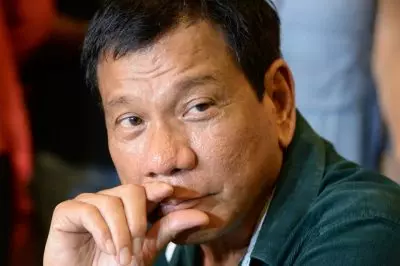 Calvinayre reported that the current Philippine President Rodrigo Duterte signed an amendment to the current Anti-Money Laundering law on Wednesday, 19th July, as part of a severe crackdown, aiming to stop the illicit flow of dirty money in the country.
Calvinayre reported that the current Philippine President Rodrigo Duterte signed an amendment to the current Anti-Money Laundering law on Wednesday, 19th July, as part of a severe crackdown, aiming to stop the illicit flow of dirty money in the country.
Duterte approved an amendment on Wednesday to the country’s Anti-Money Laundering law (AML). He signed Republic Act 10927, in an attempt to plug the loopholes in the law and tighten the regulation, covering the gambling industry.
The improved law will be valid for all type of facilities, which offer gambling and betting activities, including online and ship-based casinos. Under the approved amendment, all casino operators are required to declare to the Anti-Money Laundering Council (AMLC) any accumulated bets in a period of 24 hours, which are higher than PHP500,000 (US$10,000).
The Philippines adopted an AML law some times ago, covering also the gambling industry. Under the previous rules, the casino operators needed to report bets, totalling PHP3,000,000 (US$60,000).
The proposal to drastically decrease the threshold appeared after the breach of Bangladesh Bank, after which US$81 million was stolen, using Philippine-based casinos to “clean” the illegally-gained money.
The signed measure was gladly accepted by Philippine Central Bank Governor Nestor A. Espenilla Jr., who explained that it will close the loopholes in the law. As a Chairman of the AMLC, Mr. Espenilla added that the agency will discuss implementing the rules and regulations (IRR) of the recently signed amendment at a meeting. It is expected that more people will be assigned a watchdog task, as the lower threshold will create extra work for the regulatory body.
Mr. Espanilla also made it clear that the agency will introduce the IRR by the end of the year and it will be discussed and complied with the industry-involved operators. He also referred to state-owned Philippine Amusement and Gaming Corp, which is supposed to actively participate in crafting the IRR.
The amendment of the law was accepted with mixed feelings by the financial regulators and the casino operators. The Philippines Securities and Exchange Commission chairperson Teresita Herbosa suggested that the threshold should be even less, pointing out that PHP5 million (U$100,000) as a reasonable amount.
On the other hand, casino operators explained that the newly-introduced threshold is tight, but they prefer it than Mrs. Herbosa’s proposal, as it is even tighter.
As a major gambling venue, such preventive measures are needed to protect the proliferating industry in the Philippines. The approved threshold limit is said to tighten the Anti-Money Laundering law, covering also the internet and ship-based casinos, protecting the industry from unlawful activities.
Besides the casino industry, it is in the country’s interest to implement an effective legal framework, which is at the same time liberal on the casino operators, but also strict enough to root out the illicit activities.